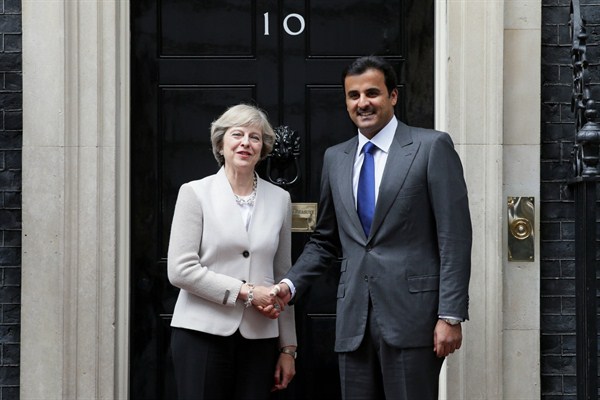In mid-September, British defense company BAE Systems announced it had signed a letter of intent to supply Qatar with 24 Typhoon jets, in the latest proposed sale of military hardware to the Persian Gulf. As U.S. power in the region has steadily receded over the past decade, the U.K. has tried to seize influence in a part of the world it once dominated by expanding security and economic ties. In an email interview, Jane Kinninmont, a senior research fellow and deputy head of the Middle East and North Africa program at Chatham House, explains the basis for enhanced defense cooperation, how tensions within the Gulf Cooperation Council, or GCC, are affecting the equation, and what Brexit means for future British engagement with the region.
WPR: The U.K. just signed its first major defense contract with Qatar. What is the nature and extent of British security ties with the Gulf, in terms of arms sales and defense cooperation, and how are ties evolving?
Jane Kinninmont: For the past few decades, the United States has been seen as the underwriter of Gulf security, a role that Britain once played during the early days of state formation in the Gulf. The process of defining the borders of Gulf countries happened under British imperial “protection,” when Britain implemented a “Pax Britannica” in the Gulf. Since the United Kingdom withdrew from this role in the 1970s, the U.S. has been the pre-eminent military power in the region. But the U.K. has had a continuous military presence in the region, as well as strong political and economic ties with Gulf countries. After the U.S., the U.K. is one of the top two suppliers of arms to the Gulf along with France. The U.K. has an interest in maintaining the security of the Gulf region given its key role in trade and energy supplies, as well as Britain’s use of military bases for wider regional interests like the wars in Afghanistan and Iraq. These bases are expected to remain important as military planners see future risks emanating from transnational militant movements in Iraq, Syria and other weakened states in the Middle East and North Africa.

